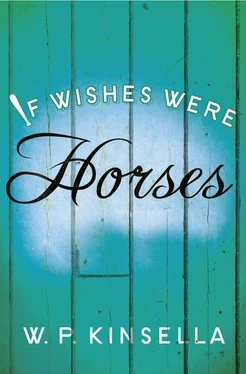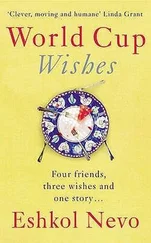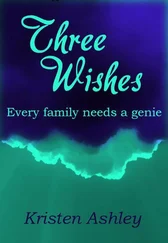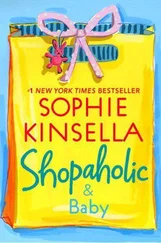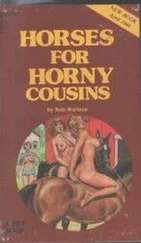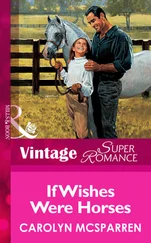They nod. Maybe I’m getting somewhere.
‘I was a reporter for a famous Southern California newspaper. Not a tabloid. We reported news. We didn’t create news.’
I had enough journalistic credits that the famous newspaper was not averse to hiring me. In the two years I was with the famous newspaper I was surprisingly successful, though, looking back, I think I may have overestimated both my abilities and influence. I made the age-old mistake of believing my own press clippings. As a journalist, I was a minor celebrity, something I had never been able to achieve in sports.
I have to admit I have a small flair for the dramatic and I enjoyed playing the part of a hot-shot reporter.
I started out doing person-on-the-street interviews. ‘What do you think we should do to achieve world peace?’ ‘How do you feel about gun control?’ In my spare time I began investigations into shady small businesses and discovered I had a unique ability to write up the results. The public loved it, and I got to feeling like Mike Wallace as I walked smiling into an office, backed up by a concealed tape recorder, ready to trap some grifter selling nonexistent graveyard plots in the desert to unsuspecting senior citizens.
What I suspect is that I’ve been living in two dimensions at the same time, or part time in each. Besides the frightening events that have happened to me, I believe I have received occasional glimpses of what might have been.
For instance, one night I saw myself and Maureen Renn walking down the steps of the great stone court house in Iowa City. It was late fall and the leaves were yellow, but the sun was blazing and the sky blue as tropical water. We were holding hands and had just come from getting our marriage license.
In Iowa when a couple marries, either one may take the other’s name, or they may choose a neutral name. We could have become the McCoys or the Renns, or we could have decided to to be the Terwilligers or the Underwoods, or any of the billion possible names floating about. At Maureen’s insistence we were going to become the McCoys.
‘Don’t you want to keep your own name?’ I asked.
‘Honey, I’ve been writing my name as Mrs. Joe McCoy ever since I was ten years old. Mrs. Joseph Michael Armbruster McCoy . Mrs. J.M.A. McCoy . I wasted half my school notepaper from fifth grade on practising variations of my married name, and nothing is going to take that away from me.’
Maureen stopped in the middle of the long flight of stone stairs. She was wearing a yellow-and-white summer dress with white accessories; her plum-colored hair, which she usually wore straight, had been curled at the ends.
‘It’s not every day I get a marriage license,’ she had said that morning as she jumped into my car and bounced across the seat to kiss me. I was used to Maureen in jeans and a denim jacket. She was so womanly in her bright dress and white sandals with crisscross ties that rose several inches up her calves.
She stepped one stair above me so our faces were even. Then she hugged my neck and kissed me. And seeing her so happy made my heart swell with love, and I knew that marrying Maureen was right, no matter what our families or anyone else said.
Every morning, on my desk at the famous Southern California newspaper, I would find fifty phone messages alerting me to various shady business operations. Within six months I had every bait-and-switch advertiser within fifty miles of Los Angeles trembling in his suede shoes and shiny suit.
Readers loved what I was doing. One of my competitors described me a twenty-five-cent Ralph Nader, which I decided to take as a compliment. There was a rumor that A Current Affair was going to do a segment on me, that they were going to nickname me Fearless Joe McCoy.
I was just starting to snoop around the edge of organized crime, had established famous and unusual underworld contacts like Pico the Rat and Bulrush Moe, and, as any investigative reporter worth his weight in clichéd situations should, had developed an enemy on the police force: Detective Nathan Wiser, LAPD.
Then came the extraterrestrial thing. Before the extraterrestrial incident, I was an investigative reporter with a reputation for both honesty and competence. I was gathering a faithful readership. I was the senior editor’s fair-haired boy. The extraterrestrial story ruined my life.
I received a telephone call from a teenage girl. Her voice was high pitched and breathless; in the background a radio blared rock music.
‘You the guy does investigatey stuff?’
‘Yes, I am,’ I said.
‘McCoy?’
‘Yes.’
‘I seen somethin’ weird. I mean real weird, you know what I mean?’
‘I’m familiar with weird,’ I said. ‘What exactly did you see, and where did you see it?’
‘This here thing came down out of the sky. You know what I mean? We really seen it. Me and Buster.’
‘Buster?’
‘My boyfriend. My old man, sort of, only we don’t live together alla time. See, we just drove out to the desert to … you know, be alone. Buster parked his car, and we had this sleeping bag. We were down in this little arroyo, you know, outa sight sort of, when this thing fuckin’ near lands on us. Pardon my French, but it scared us shitless …’
She rambled on for about five minutes. I listened intently and commented at appropriate moments. Her manner was straightforward, truthful, with a certain naivete. She put Buster on the phone. He was the strong, silent type. ‘Yeah,’ was the only word in his vocabulary. I recounted the story to him point by point, and he agreed with everything the girl had told me. Then the girl, whose name was Bertha, got on the line and told it all to me again.
I was intrigued because of the way she told the story. Here was a person who believed what she was telling me. There was probably a logical explanation, but this girl believed . I had taken enough hoax calls to know when someone was putting me on. I wrote down the address and drove out to see her and Buster.
Bertha lived in a dilapidated frame house in a lower-lower-class neighborhood on the edge of the desert. There were gaps between the houses like missing teeth, the bleached bodies of abandoned cars were strewn about, doorless refrigerators and freezers gleamed like patches of snow on the sand and brittle brown grasses.
Bertha was about sixteen, with a wide, pink face surrounded by lank, collar-length blonde hair. She was probably fifty pounds overweight; the top button of her jeans was undone and an inch of pink flesh showed between the jeans and the bottom of a black T-shirt that used to have glitter on the front in the shape of some rock star’s face. She was barefoot, sitting at a filthy kitchen table covered with empty Pepsi bottles and full ashtrays.
We got into Buster’s car, a sun-faded 1971 Ford that had been sky-blue, and drove about three miles into the desert. It was evening rush-hour on one of the hottest days of the year.
Bertha recounted her story again, yelling over the shriek of the car radio. The radio was cunningly hidden so I couldn’t find a switch to lower the volume; and Buster, who turned out to be about twenty, long and thin, in tight jeans and cowboy boots, didn’t look like the type you asked on first acquaintance to turn down his radio.
I couldn’t catch Bertha in any lies. Buster confirmed everything she said. In person he nodded and grinned, instead of saying ‘Yeah.’ He had a raw, high-cheekboned face, and hair that he must have oiled at a Texaco station. ‘Born to lose’ was tattooed on his left forearm. A dragon’s head on his right bicep peeked from the sleeve of a gray T-shirt mottled with grease and sweat stains.
I felt uneasy. Hadn’t there been a guy and girl like this in Phoenix who drove people out into the desert and murdered them? But Bertha didn’t appear to have the ability to con anyone. Both she and Buster were a little in awe of me, thrilled that a well-known investigative reporter would take them seriously, after their friends, families and, I’m sure, other newspaper people had dismissed them as lunatics.
Читать дальше
